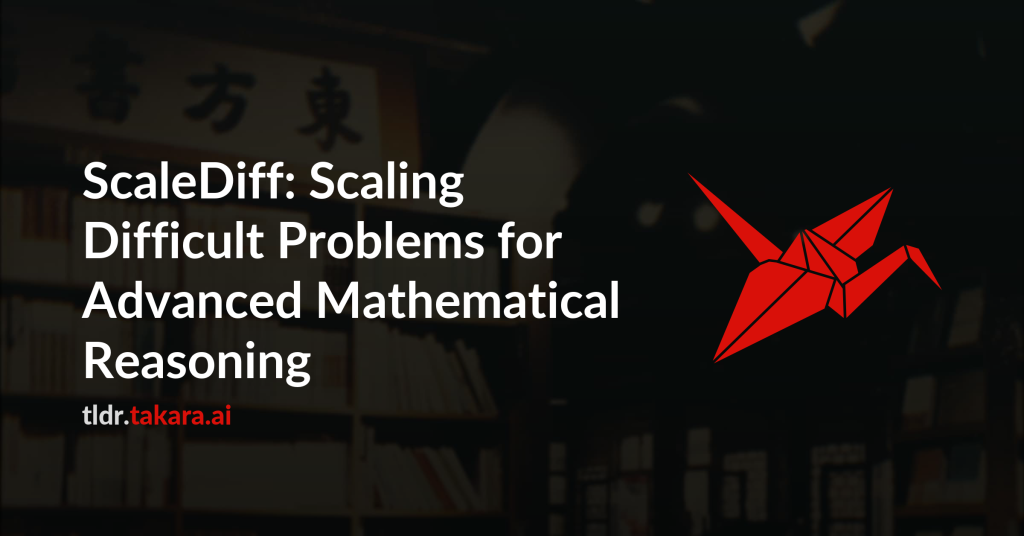Large Reasoning Models (LRMs) have shown impressive capabilities in complex
problem-solving, often benefiting from training on difficult mathematical
problems that stimulate intricate reasoning. Recent efforts have explored
automated synthesis of mathematical problems by prompting proprietary models or
large-scale open-source models from seed data or inherent mathematical
concepts. However, scaling up these methods remains challenging due to their
high computational/API cost, complexity of prompting, and limited difficulty
level of the generated problems. To overcome these limitations, we propose
ScaleDiff, a simple yet effective pipeline designed to scale the creation of
difficult problems. We efficiently identify difficult problems from existing
datasets with only a single forward pass using an adaptive thinking model,
which can perceive problem difficulty and automatically switch between
“Thinking” and “NoThinking” modes. We then train a specialized difficult
problem generator (DiffGen-8B) on this filtered difficult data, which can
produce new difficult problems in large scale, eliminating the need for
complex, per-instance prompting and its associated high API costs. Fine-tuning
Qwen2.5-Math-7B-Instruct on the ScaleDiff-Math dataset yields a substantial
performance increase of 11.3% compared to the original dataset and achieves a
65.9% average accuracy on AIME’24, AIME’25, HMMT-Feb’25, BRUMO’25, and MATH500,
outperforming recent strong LRMs like OpenThinker3. Notably, this performance
is achieved using the cost-efficient Qwen3-8B model as a teacher, demonstrating
that our pipeline can effectively transfer advanced reasoning capabilities
without relying on larger, more expensive teacher models. Furthermore, we
observe a clear scaling phenomenon in model performance on difficult benchmarks
as the quantity of difficult problems increases. Code:
https://github.com/QizhiPei/ScaleDiff.

